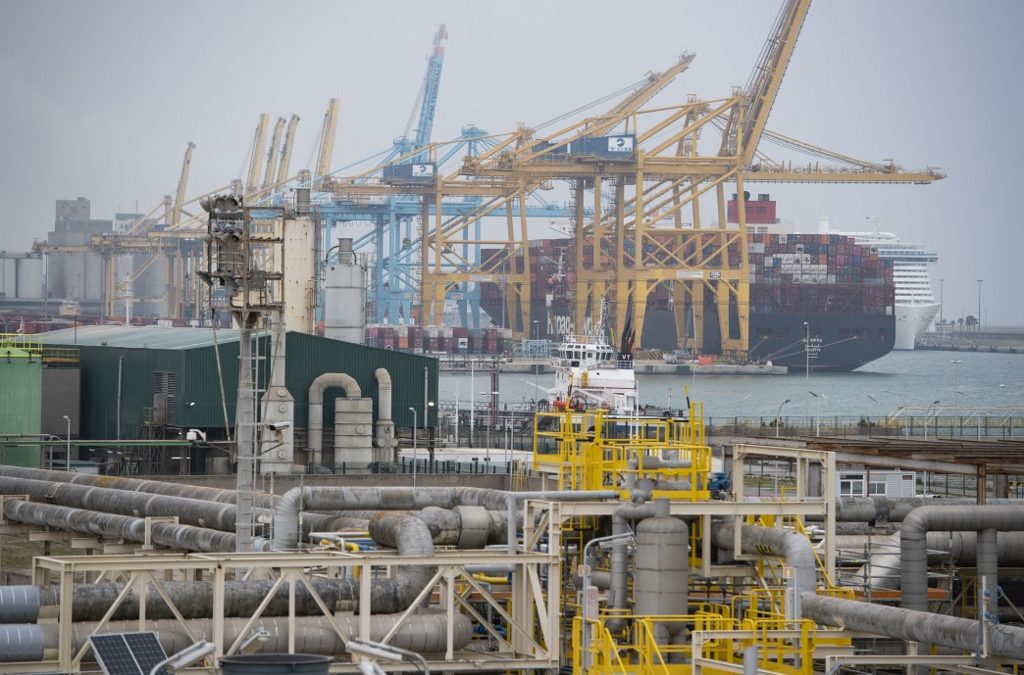Faced with US President Donald Trump’s tariff threats and China’s fast ascent in key industrial and digital sectors, as well as the need to make giant investments in new technologies, the European Union is under pressure to make life easier for its firms.
The 27-nation bloc wants to get back in the race by implementing recommendations made last year by former Italian Prime Ministers Enrico Letta and Mario Draghi on the future of European economic competitiveness.
“In a nutshell, over the last 20 to 25 years, our business model has basically relied on cheap labour from China, presumably cheap energy from Russia, and partially outsourced security and security investments. These days are gone. And we see that today Europe continues to lag behind the United States and China in productivity growth. And we must fix our weaknesses to regain competitiveness.”
Ursula von der Leyen, President of the European Commission
To chart the new course, the European Commission will rely on the so-called “Competitiveness Compass”, a new EU strategy composed of several policy revisions and proposals for the bloc.
In the Compass, the EU executive arm outlined initiatives to unlock the EU’s potential for innovation, advance policies to reduce carbon emissions, become more economically self-sufficient and increase the bloc’s overall security.
These include watering down green standards, as well as measures to cut energy costs and strengthen the bloc’s clean energy technology sector, like wind farms, solar panels and bioenergy.
More details in the planned Compass legislation include:
- Boosting the development of artificial intelligence technology in the EU.
- Creating a Capital Markets Union (CMU) to channel the vast private savings of European citizens into the much-needed investment for the transition to a new low-carbon economy.
- Launching a new strategy to create and grow start up companies.
- Establishing a new European legal regime, distinct from the 27 national jurisdictions, to allow innovative companies to benefit from a single, harmonized set of rules on insolvency, labour law, and taxation.
The Omnibus simplification package
One of the most important but controversial elements of the Compass is the “Omnibus package”, a “simplification shock” designed to cut red tape and increase flexibility for businesses operating in the EU.
Dozens of laws are to be revised, with regulations ranging from environmental and human rights supply chain standards, to reporting on corporate sustainability, and chemical safety, all facing a trim.
A major law facing change is the Corporate Sustainability Reporting Directive (CSRD), a transparency measure that requires all large companies to publish regular reports on their environmental and social activities.
Another important regulation to be modified is the Corporate Sustainability Due Diligence Directive (CSDDD) which obliges companies to take responsibility for their environmental and social impacts.
Finally, an important measure to be reviewed is the EU regulations on taxonomy, which provides clear information to investors on which investments are acceptable for the environment, and is also set for change to accommodate more business-friendly spending.
Business and industry have long argued that these laws impose big bureaucratic obligations on companies, which hinders investment, increases costs and reduces their competitiveness.
The Commission has been keen to show that it is listening.
However, launching the Competitiveness Compass, European Commission President Ursula von der Leyen stressed that despite the more business-friendly positions, the EU remains committed to the climate goals of its Green Deal.
“We will follow the goals of the European Green Deal, which are climate neutrality by 2050 and a 55 percent reduction in greenhouse gas emissions by 2030,” she said.
“We have never made such a transition and therefore we must be flexible and pragmatic on this path,” von der Leyen added.
The push for simplification has set alarm bells ringing for environmentalists and left-wing political groups.
“Under the guise of ‘simplification’, this initiative will dismantle essential safeguards for European citizens, the environment and the climate,” warned Kim Claes, Corporate capture and Fossil free politics campaigner at Friends of the Earth Europe.
But Markus Beyrer, director general at the EU-wide lobby group BusinessEurope, welcomed the plan as “a clear signal that the EU is committed to strengthening Europe’s economy”.
This article is part of the enr’s EU Elections Spotlight “EU Commission von der Leyen II: 100 days and counting”. The content is based on news by agencies participating in the enr.
